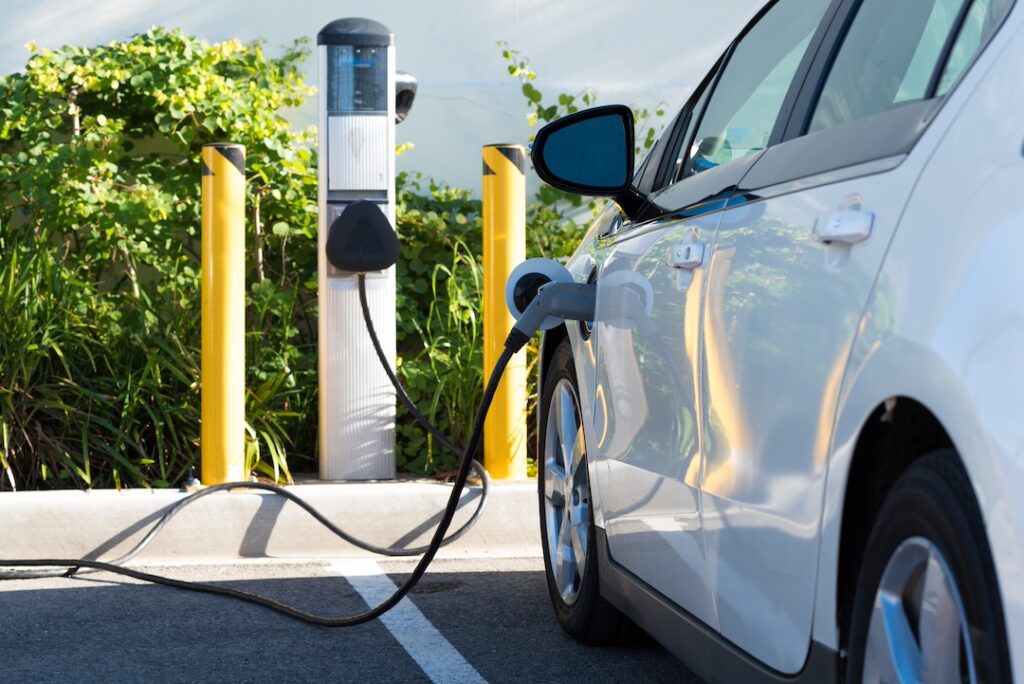
The commercial real estate sector is witnessing a significant surge in the integration of smart electric vehicle (EV) charging infrastructure, marking a transformative shift toward sustainability and technological advancement.
The growth of electric vehicles on Canadian roads is anticipated to reach 12.4 million by 2035, placing commercial structures in a crucial position to provide essential charging infrastructure for these EVs. Owners of shopping centres, office buildings, hotels, residential buildings, and other commercial property types are installing EV charging stations over other amenities to address electric vehicle drivers’ concerns with finding a charging station.
This growing implementation only means that these systems are here to stay, with more than a third of the funds allocated to EV charging installation already used by multifamily and condo corporations in Canada alone. The adoption of smart EV charging positions building owners at the forefront of innovation, sustainability and tenant satisfaction, with metering as a supporting technology to propel these goals even further.
Elevated charging with metering
As the demand for sustainable transportation continues to rise, understanding the advantages that metering brings to EV charging stations becomes essential for both operators and consumers:
1. Optimized energy management
Metering enables precise monitoring of energy consumption, allowing charging station operators to optimize energy management effectively. By tracking usage patterns and identifying peak demand periods, property managers can implement strategies to distribute energy efficiently, minimizing strain on the grid and reducing operational costs.
2. Cost reallocation
For both charging station operators and EV owners, metering provides a transparent and accurate method of tracking electricity usage. This transparency fosters trust and allows for fair and flexible pricing models. EV owners can pay for the exact amount of energy consumed, while property owners can implement tiered pricing or incentives during off-peak hours, promoting cost efficiency for all stakeholders.
3. Data-driven decision making
Metering transforms charging stations into data-rich environments. Commercial property owners can leverage this wealth of information to make informed decisions regarding station performance, maintenance schedules, and future infrastructure investments. Predictive analytics based on usage data can help operators anticipate and address issues before they impact the user experience.
4. Integration with smart grids and renewable energy sources
Metering lays the groundwork for the incorporation of EV charging stations with smart grids and renewable energy sources. By aligning charging activities with periods of high renewable energy availability, operators can maximize the use of sustainable power, contributing to the reduction of carbon emissions associated with electric mobility.
An evolving landscape
Building managers and owners should view EV chargers as integral components of a transforming environment. As electric mobility continues to shape the future of transportation, the role of metering technology becomes increasingly indispensable in creating a reliable, cost-effective and environmentally conscious charging infrastructure. Embracing this change not only corresponds with the shifting patterns in transportation but also elevates the appeal of properties in a world that is progressively prioritizing sustainable mobility.